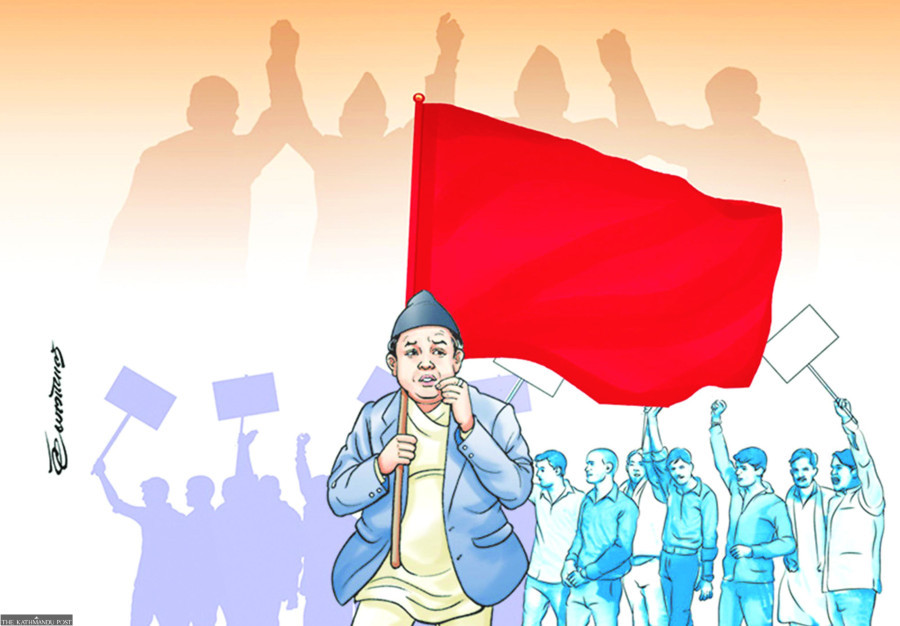Editorial
Perversion of democracy
It would be laughable for the leader of the seventh largest parliamentary outfit to lead the government.
To say CPN-UML chairperson KP Sharma Oli does not like Madhav Kumar Nepal, his erstwhile party colleague and now the chair of CPN (Unified Socialist), would be an understatement. Oli abhors Nepal. When Oli, as prime minister, unconstitutionally dissolved the parliament in 2021, Nepal broke away to form his own party. But Oli’s loathing goes back much farther. When the two were contesting the UML’s chair back in 2014, Oli resorted to the vilest personal attacks against Nepal to build his case for party leadership. Reporters interviewing Oli back then would be left aghast at this lack of even basic decency.
This old enmity has gotten a new twist as Oli has started an all-out campaign to prevent Nepal from becoming the prime minister again. As per an understanding between coalition partners Nepali Congress, the CPN (Maoist Centre) and the CPN (Unified Socialist), Nepal will get to be prime minister when Dahal completes his two years in office at the end of 2024. Oli is having none of it. The UML chairperson has apparently told Pushpa Kamal Dahal that he is ready to do anything to keep Nepal away from Singhadurbar, including supporting Dahal’s continued government leadership.
Oli’s hatred stemmed from the fact that some could even contemplate challenging his total control over the party. The UML chair’s old ire aside, there are more substantive reasons to hope Nepal does not become prime minister again. As the chair of CPN (Maoist Centre), the current prime minister, Pushpa Kamal Dahal, controls just 32 seats in the federal lower house. The Nepali Congress, which has propped up his premiership, has 88 seats. If it is unnatural for the leader of a distant third party in the legislature to lead the government, it would be laughable for a leader of the seventh largest outfit with just 10 seats to do so. A parliamentary system only works if there is an effective system of check and balance, which is provided when the biggest party in the House leads the government while the second biggest holds it to account as the main opposition. In the absence of a clear majority for any one party, in rare cases, the second biggest party can lead the government while the biggest occupies the opposition’s benches.
Yet our top leaders have perverted the system to suit themselves. Following the 2022 elections, Nepali Congress President Sher Bahadur Deuba, Dahal and Nepal decided to head the government by turns for the next five years. How their personal calculation would look to the rest of the country, they seemed unbothered.
Madhav Kumar Nepal probably will not be the next prime minister. In the past, such power-sharing agreements have more often been broken than honoured. But that is beside the point. The main reason there cannot be political and policy stability in the country is not that we have a proportional representation system that will nearly always result in hung parliaments. It is that most of our top leaders have become incapable of seeing beyond their immediate personal interests.




 10.12°C Kathmandu
10.12°C Kathmandu













